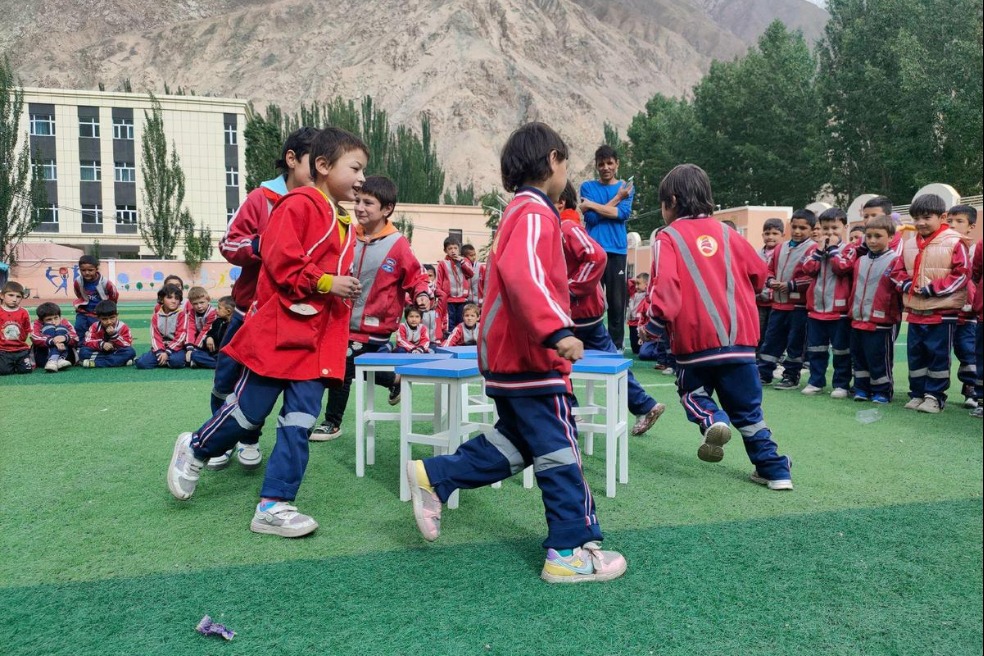Reconnecting to tackle problem of alienated youth

Peter Liang urges sympathy for youngsters who see themselves as trapped, and welcomes authorities' efforts to take their plight seriously
The Hong Kong government is making what are widely perceived as genuine efforts to reach out to the so-called lost generation; young people who are confused by and scared of the seismic social and economic changes heightening regional competition has brought.
The notion that Hong Kong is falling behind the fast-emerging economies in social progress and economic development has seriously sapped the confidence of many young people and twisted their self-perception in important ways. It is hard for those adults who grew up in the "golden era" of the 1970s and 1980s to understand the frustrations of today's youth, overcome by the feeling of loss.
Business leaders are quick to label young Hong Kong people as myopic and self-centered spoilt brats who think the world revolves around them. Such finger-wagging criticisms can do nothing but heighten young people's mistrust of the establishment which they believe is dominated by heartless business people, particularly property developers, insensitive bureaucrats and politicians.
Nobody expects the more persuasive approach to the youth problem taken by Chief Executive Carrie Lam Cheng Yuet-ngor, who was once a social activist in her university days, can produce significant results in a short time. But her efforts in trying to show there are opportunities in government and private businesses are the needed encouragement to young people who are willing to work for it.

The scheme to recruit young professionals in advisory roles in various government departments and invite young people to join the Central Policy Unit may seem to critics like "window dressing". But it has the real effect of showing that the government is willing to listen to the views and, yes, complaints too, of Hong Kong's youth even if their opinions may seem naive to seasoned bureaucrats.
Indeed, it's unfair to put the blame entirely on rebellious youth. There was a time when many young entrepreneurs trotted the world to sell the garments and toys they produced in Hong Kong and elsewhere. They were young people in their late 20s and 30s managing factories in underdeveloped economies in Africa, South America and the Pacific islands.
At that time, hundreds of thousands of young men and women labored tirelessly in factories producing a wide range of goods for export to markets around the world. Despite the substandard living and working conditions, workers had little to complain about. In fact, they took tremendous pride in Hong Kong's achievements. For instance, Hong Kong was the first city in Asia outside Japan to have a modern mass-transit system that was the envy of people in other regional economies.
As a mature economy since the turn of the century, economic growth has slowed, while developing economies in the region are taking off. It is easy to understand that those young people who have heard of but never experienced rapid economic growth are having a sense of being left out of the good times.
What's the point of telling young people to work harder when many of them are already working overtime to make a living for themselves and their families? Their complaints against the government and establishment may not be fully justifiable. A few of them may fit the bill of a spoilt brat. If that's the case, the adults have only themselves to blame.
Lam has shown that this is not the time to indulge in the blame game that will only harden positions and widen the gulf between both sides. Her attempts to give a voice, no matter how palatable it may be, to the youth in Hong Kong should be supported.
More importantly, the government's new housing policy that focuses on fostering a strong sense of belonging through homeownership can be key to breaching the social divide. The proposal to help young first-time homebuyers acquire homes at subsidized prices can do more than any public education or lecturing to bring them back into the fold.
Indeed, the root of the youth problem can be traced to the increased feeling of disconnect. It seems that the government has finally got it right and is doing something about it.
The author is a current affairs commentator.
(HK Edition 11/27/2017 page10)
Today's Top News
- US seriously undermines economic talks with China
- Critical thinking key to AI education, experts say
- Efforts intensify to boost fair practices among automakers
- China-US cargo routes bustle again
- CAFTA 3.0 hailed as advocate of multilateralism
- Philippines slammed for distorting the truth






























